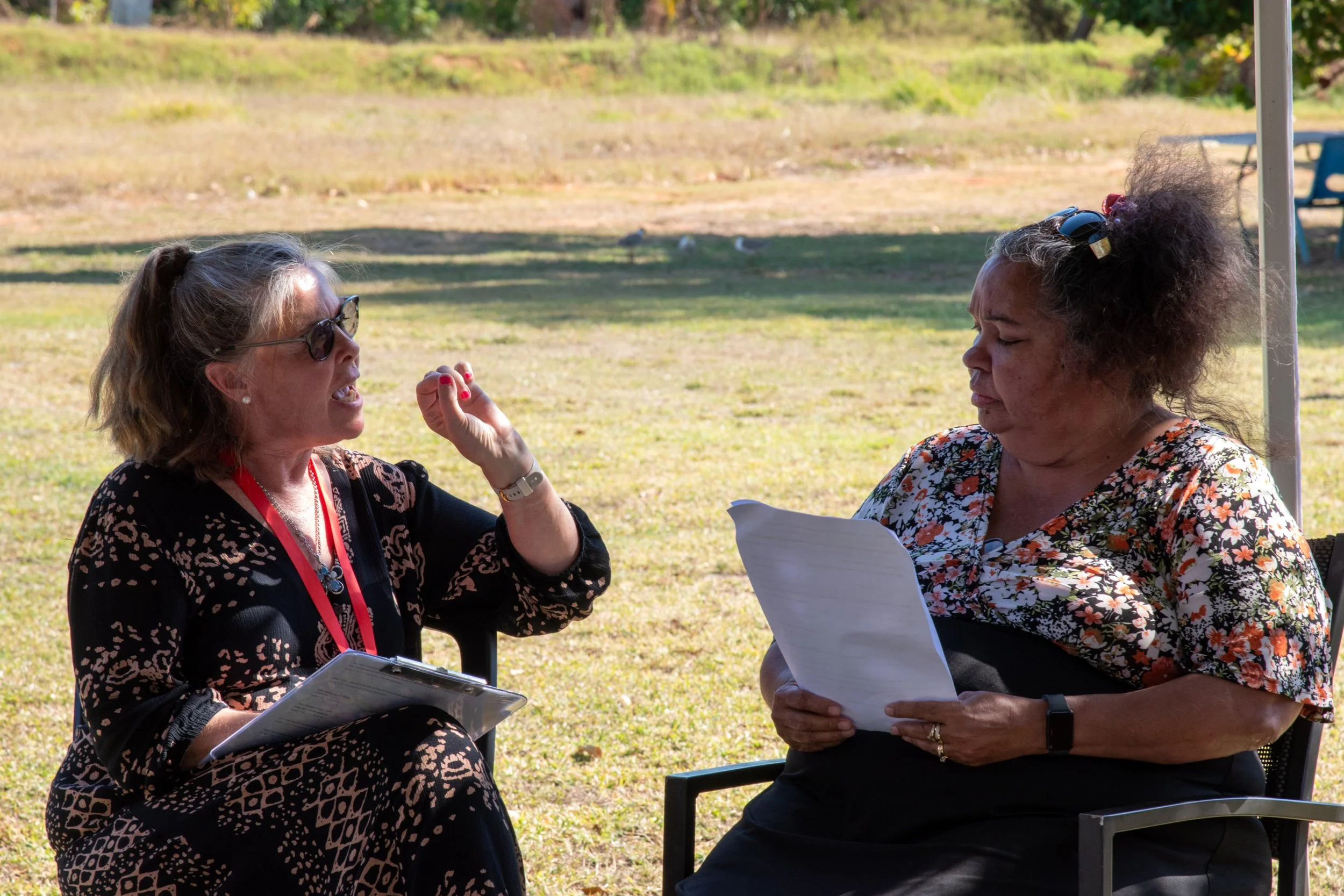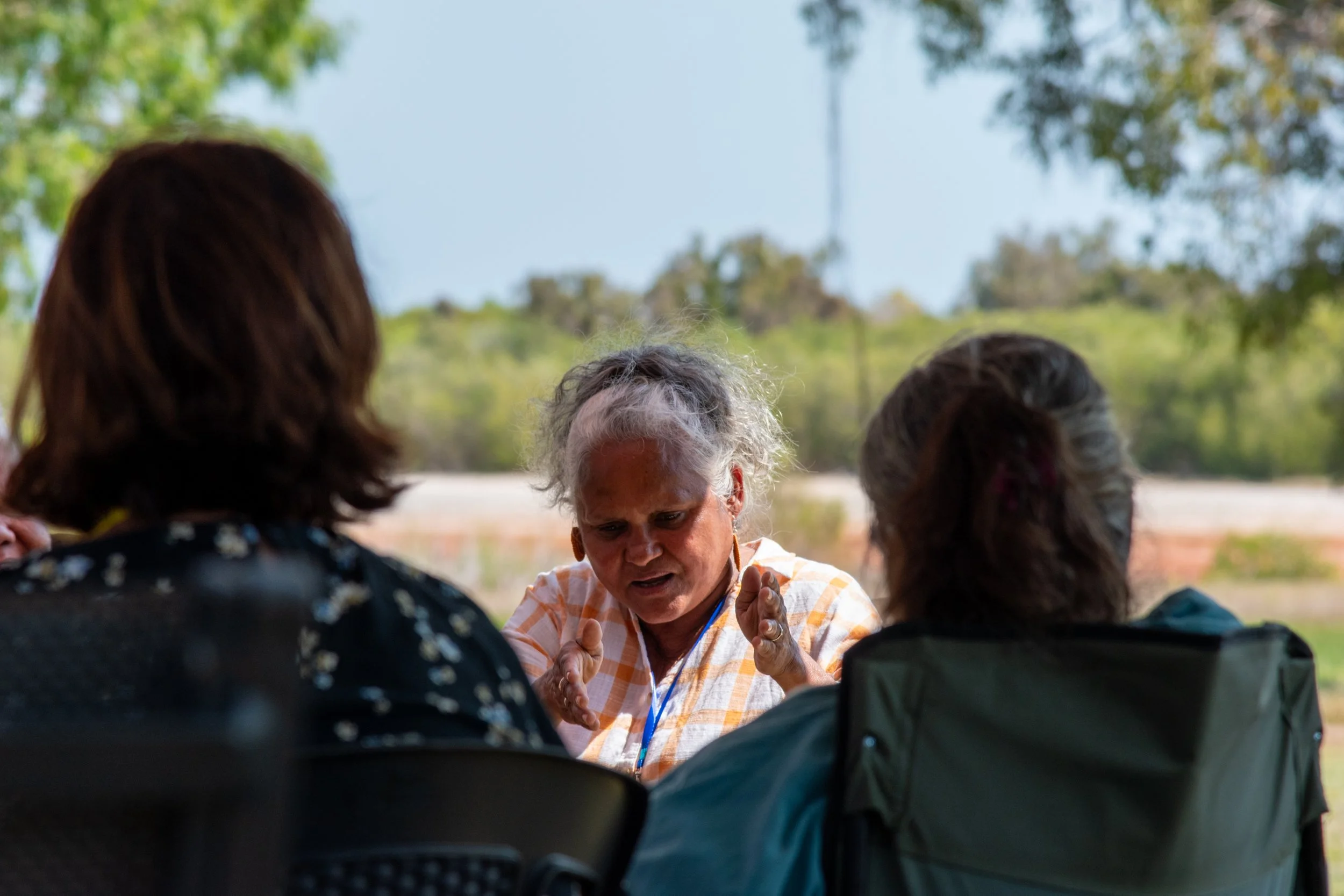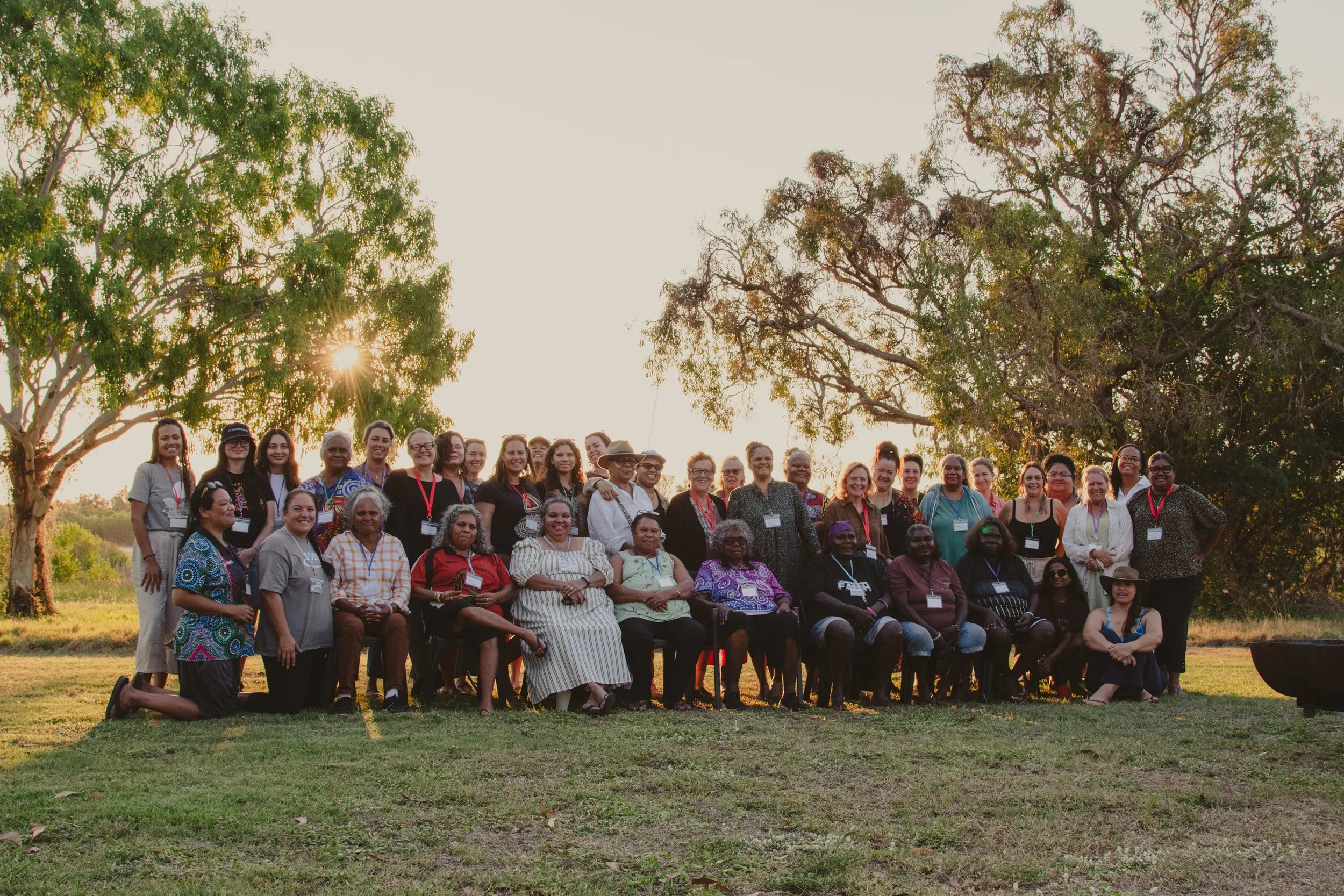Trading Desks for Campfires
Trading Desks for Campfires
By Frances Mayall, Head of Marketing and Communication, Good Return
One of my favourite parts of my working day at Good Return is scrolling through our “Field Updates” in our internal comms channel — a window into the world of our programs team. It might be a photo from the hills of Nepal, a meeting with the Ministry in Cambodia, or a snapshot of a woman in Fiji proudly launching her organic soap business. My role is to take these moments and bring them to life for Australian audiences, helping our community understand why we focus on financial inclusion for women and what’s possible when a woman gains the skills and confidence to take charge of her finances.
Recently, I had the chance to move from screen to real life. I travelled to the Dampier Peninsula in Northern Australia for a gathering of the Maganda Makers — a business club for Indigenous women entrepreneurs in the Kimberley region. For years I’ve heard from our program director and wonderful partners about this work through stories, videos and updates, but what I discovered is that nothing compares to witnessing a program unfold in front of you.
Being on location mattered. The experience wasn’t just about the event itself — it began with the journey. Driving along the long red dirt roads between small towns, I saw first-hand how distance and isolation shape people’s daily lives, knowing those same roads are cut off entirely during the wet season.. Being formally welcomed onto Country by Elders, with permission to witness and join in, deepened my appreciation for the cultural protocols that underpin everything in this space. And then there was the land itself — the striking colours, the bushland, the coastline — a reminder of the beauty that surrounds these communities, but also of the challenges of building businesses in such a remote environment with a complex history.
Then came the heart of it: sitting in a circle around a fire listening to each woman share her story. They spoke of barriers overcome, goals for their businesses, and - most moving of all - their dreams for each other. I saw the power of women uplifting women in action: yarning circles about practical steps like pricing a product or service, pitch sessions where skills grew before my eyes, clapping and cheering as leaders encouraged new and younger members.
Coming home, I realised just how different it is to read about a program compared to experiencing it. At my desk, I had often read about the approach to Indigenous business — for example, that unlike Western models which push for constant growth, Indigenous approaches often prioritise balance, allowing space for family responsibilities or Sorry Business. In Dampier, that idea leapt off the page and into real life as I listened to women share how they had chosen to slow their businesses for their families. The same was true for leadership. I’d read and written about the saying “she cannot be what she cannot see”, but it was something else entirely to watch it unfold in front of me. Around the fire I saw women modelling leadership for one another, and I almost felt the fire in their bellies being passed from those with experience to those just starting out.
These stories and learnings don’t belong to me or to Good Return — they belong to the women who shared them. My role is simply to pass on what I witnessed, with respect and gratitude for the chance to sit with them, listen, and learn.




